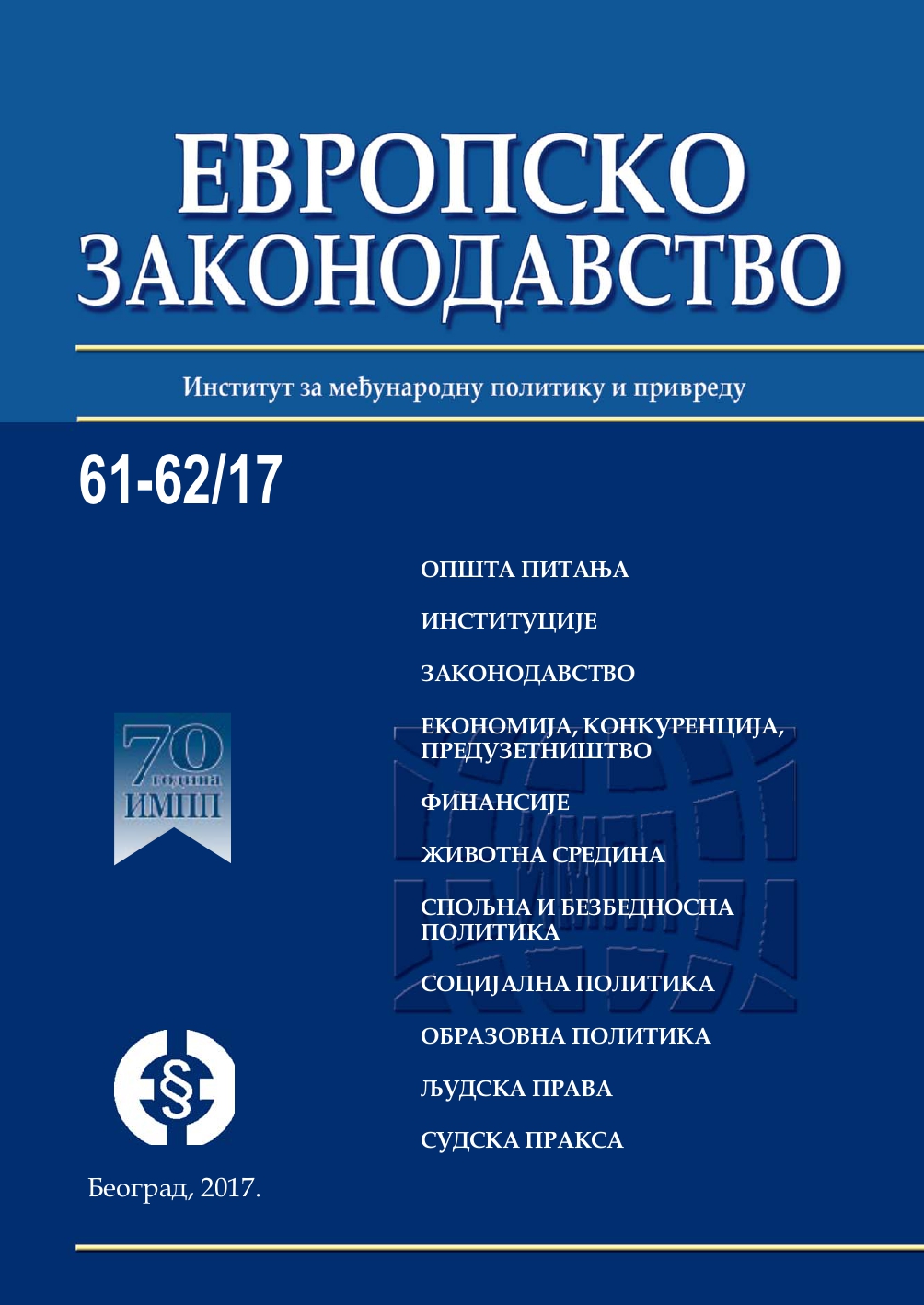"BREXIT" - повлачење Велике Британије из Европске уније
"BREXIT" - withdrawal of Great Britain from the European Union
Author(s): Bojan MilisavljevićSubject(s): EU-Legislation
Published by: Институт за међународну политику и привреду
Keywords: Brexit;withdrawal from EU;the United Kingdom
Summary/Abstract: This paper analyzes the main reasons for taking Britain out of the membership in the European Union. After this, the paper presents a procedure for leaving the membership after a referendum in the UK. Particular attention is paid to the potential issues that will arise during the negotiations and some possible scenarios of further relations of Great Britain and the European Union after Brexit are presented. Until recently, even the European Union did not foresee the possibility of membership withdrawal. This is foreseen only with the Treaty of Lisbon. One of the four largest and most influential countries of the European Union decided in a referendum to leave the membership of this organization. This event was only confirmed by the long-standing feeling that the British were not happy with participation in the European Union and that they had no clear conviction about the benefits of that membership. Although this country has been outside of some important European Union policies, its emergence from the membership is a major challenge with some predictable and probably some unpredictable consequences. Due attention was paid to the participation of Great Britain in the enlargement process of the European Union during the negotiations on the exit from the membership and the position of the Republic of Serbia in this regard. The author analyzed the consequences of the withdrawal of Great Britain for the process of enlargement of membership and pointed to two possible trends. It was concluded that after leaving the membership of the European Union, the United Kingdom will remain closely linked with it, both in economic terms and in terms of conducting foreign policy. It is likely that relations between the European Union and the United Kingdom after Brexit will be close, but the question of the application of Community law after Britain leaving remains. Furthermore, it would be interesting to see how will be completed and executed processes and judgments of the European Court of Justice, which will start before but terminate after the British withdrawal from the membership. Formally such judgments should be made, but it remains to be seen how it will end the negotiation process. Regarding the process of accession of new Member States, it is certain that Brexit will either delay the entry of new members, or the potential for new countries to become the members of the European Union will be higher than before. The active participation of the United Kingdom in the process of accession to membership is somewhat inappropriate when this country is irreversibly on its way out of the European Union.
Journal: Европско законодавство
- Issue Year: 2017
- Issue No: 61-62
- Page Range: 30-42
- Page Count: 13
- Language: Serbian

